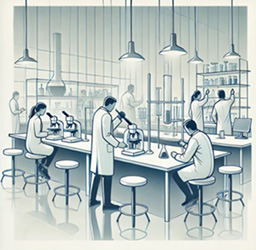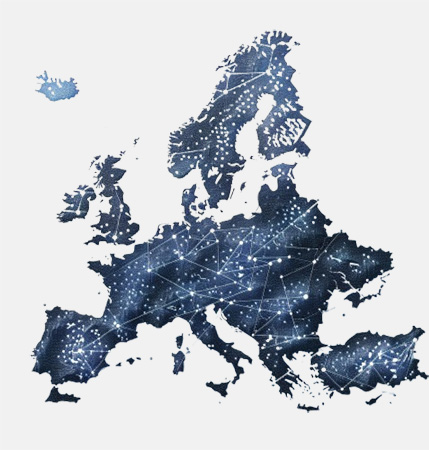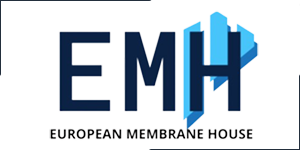Who we are
Based in Brussels, the European Membrane House is a non-profit international association dedicated to advancing membrane science and technology.
Our roots trace back to the NanoMemPro project, a collaborative initiative launched in 2004 by thirteen leading universities and research institutes across Europe.
Funded by the European Commission under the 6th Framework Programme, NanoMemPro aimed to create a robust European network of researchers and industrials.

Our History
NanoMemPro's success laid the foundation for the establishment of the EMH in 2008.
Led by Prof. Gilbert M. Rios from the European Membrane Institute (Montpellier, France), the EMH continued to embody the core mission of NanoMemPro; promoting excellence in membrane research and technology.
This initiative was born out of a commitment to sustain and expand the partnerships and collaborative spirit fostered during NanoMemPro.
Since 2024, EMH has been under the presidency of Prof. Marc Héran from the European Membrane Institute.
Our projects

We have spearheaded and participated in numerous EU-funded projects from its coordination, facilitation, or leading communication work packages. With 15 years of experience, EMH provides guidance and expertise in European project management and coordination.
We have successfully coordinated and partnered in projects such as:
- NanoMemPro Network of Excellence (FP6)
- MemBridge (FP7)
- Various Horizon 2020 projects (Carena, Chemwater, Xeric, Romeo)
These projects focused on eco-efficient industrial methods, novel materials, sustainable chemistry, and advanced membrane applications in energy, water, and healthcare.
Our mission
At EMH, we promote and enhance the coordination of research activities in membrane science, foster expert collaboration, and build strong ties with European industry, particularly with small and medium-sized enterprises. EMH also acts as a think tank, developing new and promising concepts such as science diplomacy and nature-based solutions. Our work spans diverse fields including health, environment, energy, and transport, aligning closely with the UN SDGs and UNESCO’s missions. We focus on facilitating visibility and collaboration in membrane science and technology across Europe, developing and implementing strategic communication plans for researchers and the public, and establishing strong interactions among researchers, industry, and end-users to address interdisciplinary challenges.

Education & Training
Developing education and promoting the training of young experts in membrane science and technology to address application bottlenecks due to a lack of qualified personnel has been a primary focus of the NanoMemPro project. The EMH has significantly advanced this goal by supporting the creation of two four-year EU instruments within the EU programme for education, training, youth, and sport: “EM3E,” the Erasmus Mundus Master in Membrane Engineering, and “EUDIME,” the Erasmus Mundus Doctorate in Membrane Engineering. The EM3E-4SW master's degree has been accredited twice. EMH has also engaged in ITN networks for doctoral and post-doctoral training, such as DYNANO and BIOART.Collaboration & Networking
The EMH has been an active participant for several years in the WssTP (Water Supply and Sanitation Technology Platform), serving as a member of the International Technology Advisory Board (TAB) and leading the “Membrane and Water” Working Group. EMH co-published reports with WssTP in 2012 and 2014 on “Advanced Membrane Technologies for Water Applications” and collaborated on the ChemWater EU project. EMH has also contributed to “SusChem,” the EU platform for sustainable chemistry, and “SPIRE” (Sustainable Process Industry through Resource and Energy Efficiency), a Public-Private Partnership from 2012 to 2018. Additionally, EMH participated in the “European Green Cars Initiative” (EGCI), part of the European Economic Recovery Plan launched in 2008.



